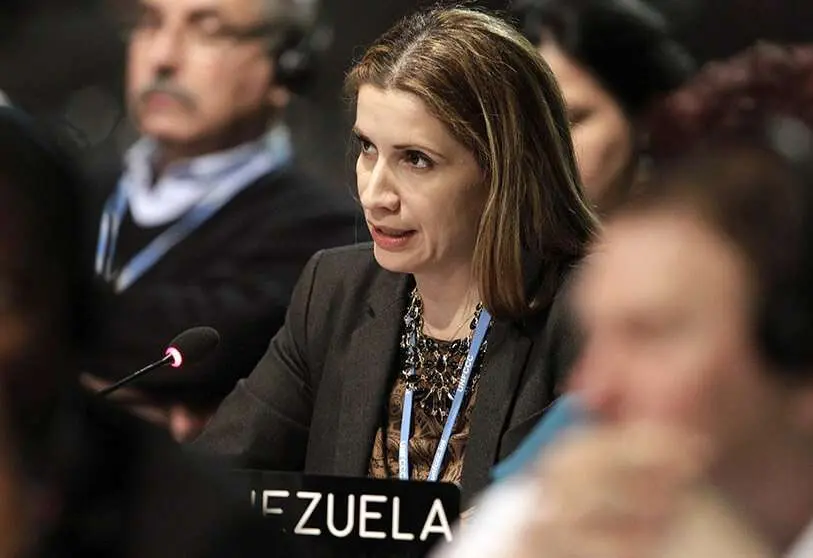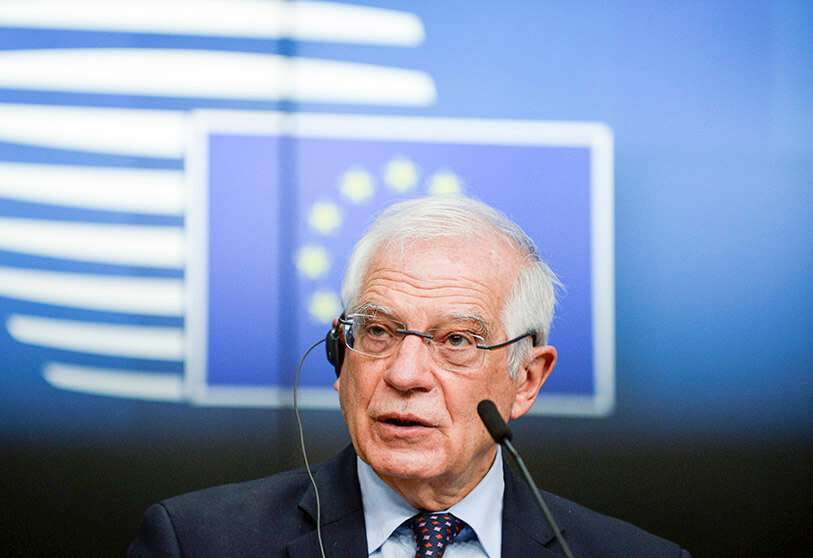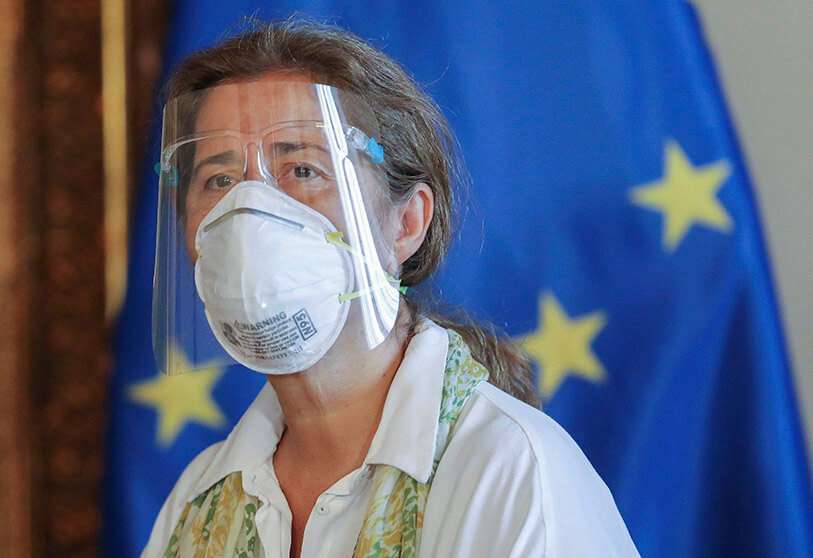The EU raises the tone in the face of Venezuela's rudeness

Tension between the European Union (EU) and Venezuela has increased exponentially following the diplomatic blows that have been dealt in recent hours. The Venezuelan government ordered the expulsion of the European ambassador to Venezuela, Isabel Brilhante, due to the sanctions received by the EU, and in response, the European body has declared Claudia Salerno, head of the Venezuelan mission in Brussels, persona non grata.
"The European Union considers this declaration to be completely unjustified and contrary to the Union's objective of developing relations and building partnerships in third countries," the Council said in a statement.
The decision was taken "on the initiative of the High Representative of the Union for Foreign Affairs and Security Policy", Josep Borrell, according to the official note. Claudia Salerno herself, in addition to being head of the Venezuelan mission to the EU, is also ambassador to Belgium and Luxembourg. Salerno will not have to leave Brussels, as she is Maduro's representative to the Belgian and Luxembourg countries, so for the time being she will be able to remain in that city to carry out her duties. However, he will not be able to enter European Union facilities.
Venezuela exploded in the face of the sanctions received by the EU and the planned visit of the Spanish Foreign Minister, Arancha González Laya, to Colombia to meet with President Iván Duque, a great enemy of the Bolivarian regime in Venezuela.
Duque stressed that González Laya will review the Temporary Protection Statute for Venezuelan Migrants, the bill of rights that the Colombian government announced on 8 February to benefit some two million regular or irregular Venezuelans in the country. "Spain has played a fundamental role in the coordination of the donor roundtables, both with King Felipe and with the President (of the Government, Pedro) Sánchez, we have managed to ensure that they understand the scope of this measure and we want Spain to be an articulator so that this international aid moves from declarations to disbursements", Duque stressed. Faced with this scenario, the regime of Nicolás Maduro responded publicly with criticism, including from Jorge Arreaza, the Venezuelan foreign minister.

According to data from Migración Colombia, as of 31 December there were 1.72 million Venezuelan migrants in the country, of whom nearly one million are undocumented and some 800,000 have their status regularised.
In this tense situation that has been building up, following the sanctions imposed by the EU on Venezuela, the president of the Caribbean country himself, Nicolás Maduro, explained the Venezuelan government's decision to expel Isabel Brilhante from the country. "We are doing this against our will, because we want to have the best relations with all of Europe, but we cannot accept anyone coming to offend Venezuela, to attack, to sanction Venezuela. We will not accept it from anyone," Maduro asserted.
Meanwhile, Isabel Brilhante is keeping a low profile, without making any statements after receiving the letter of expulsion from the country from Jorge Arreaza. Now, the expectation is whether the ruler will leave the expulsion of Isabel Brilhante without effect, as already happened in July 2020, or whether he will carry out his threat to get rid of other ambassadors such as those of Spain, France, Germany or the United Kingdom, as reported by the newspaper La Razón. Brilhante is still in Venezuela, in principle while the 72-hour deadline he received to leave the territory elapses. Meanwhile, the Venezuelan regime continues to refuse to reconsider the measure.

On Monday, the EU sanctioned 19 Venezuelan officials and senior officials for their role in acts and decisions that it considers to undermine democracy and the rule of law in Venezuela. The decision brought to 55 the number of officials and senior officials sanctioned by the EU, with travel bans and asset freezes in EU territory.
Police Commander Remigio Ceballos, the governor of the state of Zulia, Omar José Prieto, and the president of the National Electoral Council, Indira Alfonzo, are among the new list of leaders who will be banned from entering EU territory and whose assets and property in the EU will be frozen. Several members of the National Assembly have also been penalised for not having been "democratically elected", as well as some members of the Supreme Court.
This festering of positions between the EU and the Chavista government stems from the situation generated by the legislative elections of 6 December, which were held without the participation of opposition candidates and recorded serious irregularities and a high abstention rate. The elections were not recognised by the European Union, the United States or most of the governments of the region, which continue to see the opposition candidate Juan Guaidó as a valid interlocutor.

The Chavista regime flatly refused to change the date of the vote, citing the deadlines of the Constitution, and went ahead with the process last Monday 22 February, the European Union imposed a series of sanctions against 19 senior Venezuelan officials, legislators and members of the security forces in response to what happened with the legislative elections. According to the bloc, the elections were rigged in favour of pro-Maduro parliamentarians.
Opposition leader Juan Guaidó lost de facto control of the National Assembly, of which he had been president since January 2019, following the December elections. His position as head of the legislature also underpinned the broad international recognition as interim president against Nicolás Maduro, which he won two years ago in the midst of the struggle to achieve the resignation of Hugo Chávez's successor and the formation of a transitional government. When he was excluded from parliament, however, several bodies ceased to attribute this role to him. Among them, the European Union itself, although Brussels does consider him to be a first-line interlocutor for the resolution of the Venezuelan crisis.
The Venezuelan opposition leader himself rejected the expulsion measure, while highlighting Isabel Brilhante's support for the protection of human rights. "We are in solidarity with the European ambassador, who has always shown her support for human rights and democracy in Venezuela on behalf of Europe. The dictator's arrogance isolates him more from the world and pretends to drag the country down with him," Guaidó said.








